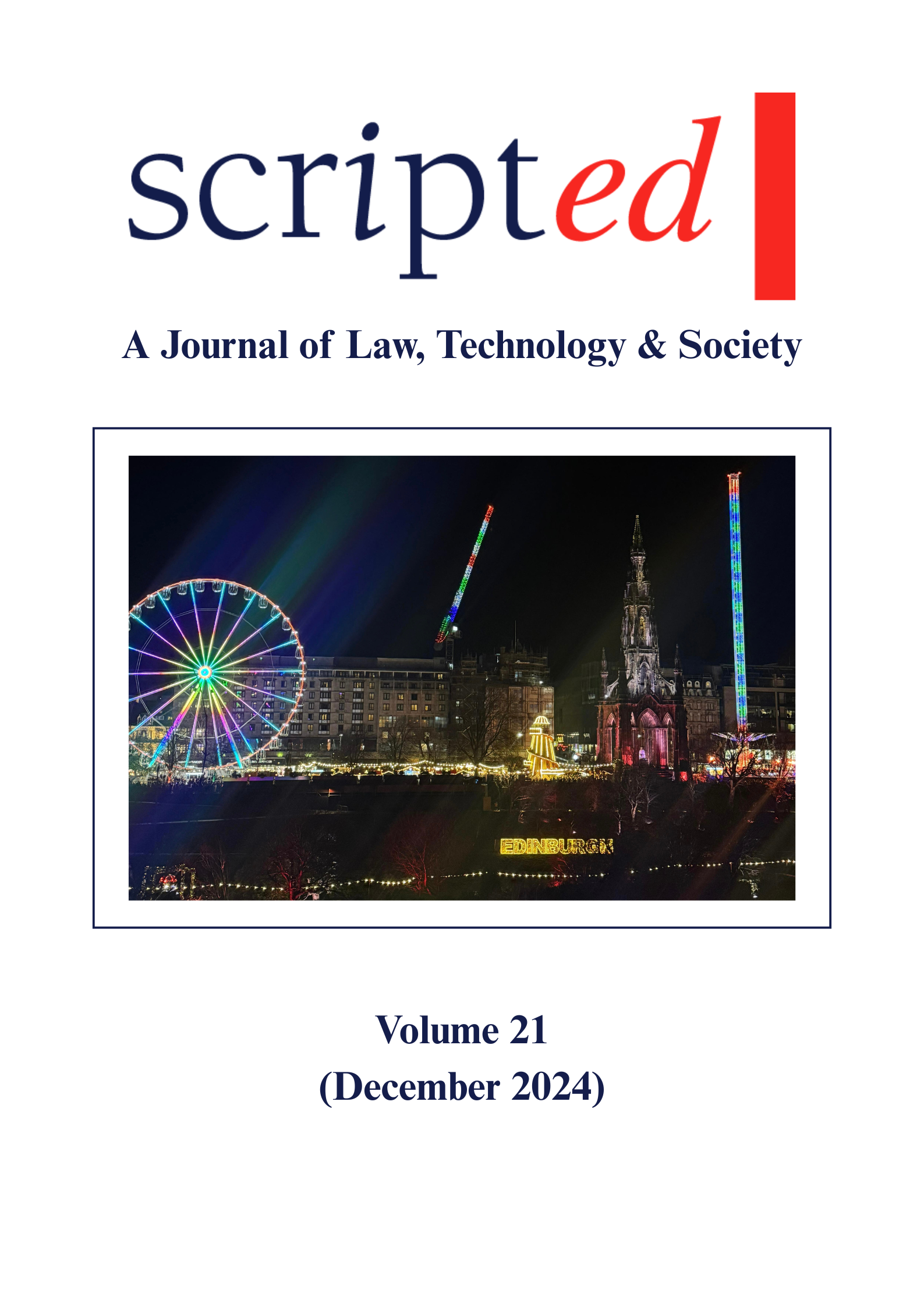Post - mortem privacy and digital legacy - a qualitative enquiry
DOI:
https://doi.org/10.2218/scrip.210024.4Keywords:
Digital legacy, digital remains, postmortem privacy, empirical inquiryAbstract
This paper presents the results of the first qualitative empirical study on digital legacy and post-mortem privacy in the UK, shedding light on experiences, practices, perceptions, and limitations in the field. Our research confirms and extends existing theoretical and doctrinal work, validating key arguments, assumptions and ideas. The study unveils critical issues surrounding awareness, platform behaviours, and the limitations of current practices, exacerbated by the global impacts of the Covid-19 pandemic.
Central to our findings is the overwhelming lack of awareness among users, practitioners, platforms, and regulators, highlighting a pressing need for increased engagement from the media, academics, and professional associations. The study identifies key drivers for change, emphasising the role of individual grief, high-profile cases, and technological advancements.
Legal professionals, facing obstacles in the absence of clear regulations, exhibit leadership and creativity in addressing client needs, claiming a new expertise in the evolving field of digital legacy. Contrary to the clear call for law reform among practitioners, regulators acknowledge the growing importance but prioritise other areas, necessitating a cross-cutting reform approach. Concerns about platform cooperation, jurisdictional differences, and the inadequacy of existing solutions emerge, urging a re-evaluation of technological and in-service solutions, such as Facebook or Apple Legacy Contact. Education and media literacy are identified as pivotal components, addressing the broader landscape of digital legacy and privacy.
Our findings underscore the urgent need for legal and policy reform, conceptual clarity, and a review of technological solutions. The study's impact extends beyond empirical evidence, informing subsequent research on user perceptions and guiding the development of policy and law reform proposals in the underexplored realm of digital legacy and post-mortem privacy.
Downloads
Published
Versions
- 05-Mar-2025 (2)
- 19-Dec-2024 (1)
Issue
Section
License
Copyright (c) 2024 Edina Harbinja, Marisa McVey, Lilian Edwards

This work is licensed under a Creative Commons Attribution-NonCommercial-NoDerivatives 4.0 International License.






